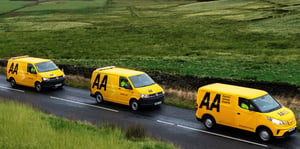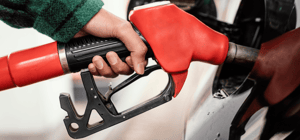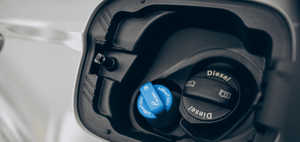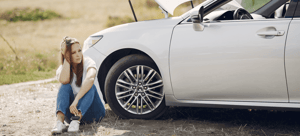Compare cheap breakdown cover
✔ Local, nationwide and European cover options
✔ Compare prices and choose the right policy for you
✔ Cover for cars, vans and motorbikes and scooters
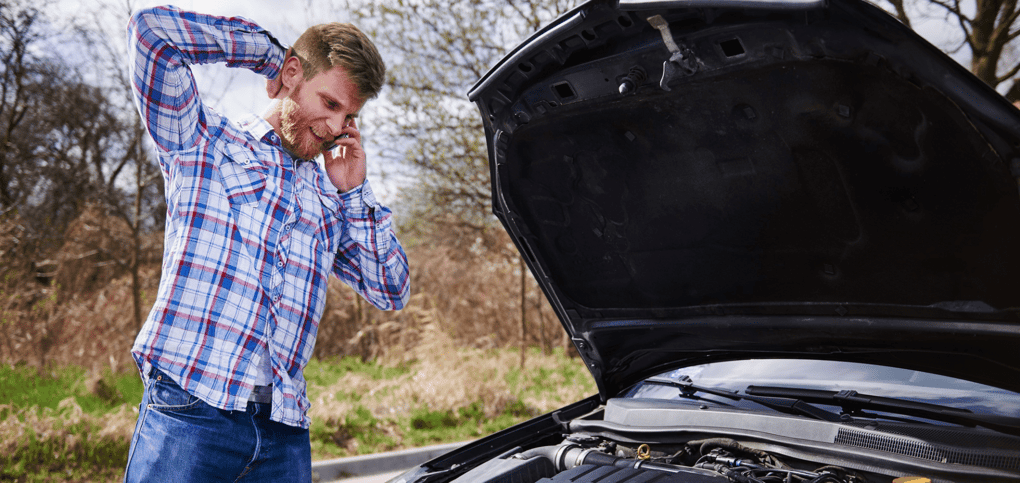
It’s important to be prepared in case of a vehicle breakdown, as there are approximately four million breakdowns each year in the UK. To ensure that you have the necessary equipment in case of an emergency, it’s helpful to use a checklist. Here is a list of essential items to pack in your car to make sure you are prepared for any unexpected issues on the road.
- A portable mobile phone charger
- An empty fuel can
- Food and drink supplies
- Warm clothes and waterproof jacket
- A high-visibility vest
- A warning triangle
- Puncture repair kit
- A torch
- Jump leads
- A tow rope
- A shovel
- De-icer and a scraper
- A first-aid kit
- Your breakdown insurance policy information
- Frequently asked questions
A portable mobile phone charger
Having a portable mobile phone charger is essential when driving, as it ensures that you can make a call for help in the event of a breakdown.
Carrying an in-car mobile phone charger or a portable power bank is a smart move to avoid running out of battery and being unable to contact your breakdown provider or inform people that you’ve encountered a problem.
An empty fuel can
Carrying an empty fuel can in your vehicle can be incredibly helpful in case you run out of fuel and are within walking distance of a petrol station.
Many larger petrol stations also sell fuel cans, allowing you to quickly fill up the can and add the fuel to your vehicle yourself. This may prove to be a faster solution than waiting for the breakdown services to arrive.
Compare cheap breakdown cover
Food and drink supplies
It’s important to have food and drink supplies on hand when driving to ensure that you stay hydrated and fuelled in case of an emergency.
A filled reusable water bottle is a must-have item, as it provides a sustainable and convenient way to stay hydrated while on the road. Additionally, it’s important to stock up on non-perishable food items such as cereal bars that can provide an energy boost without quickly expiring.
Opting for food items that have a decent “use by” date can help you avoid finding mouldy or expired food when you’re in need.

Warm clothes and waterproof jacket
It’s important to be prepared for all weather conditions in case you need to exit your vehicle and wait for your breakdown service to arrive or walk to find help.
Carrying warm clothes such as a jumper or fleece and a waterproof jacket can provide additional comfort during bad weather conditions. In the winter months, a fleece or foil blanket can also come in handy to provide extra warmth.
Breakdown cover providers
Find the UK's leading breakdown cover providers below.
A high-visibility vest
While a high visibility vest is not a legal requirement for driving in the UK, it is a smart item to keep in your car.
In the event of a breakdown in a dark or low-visibility area, wearing a hi-vis vest can help ensure that you are seen by other drivers and reduce the risk of an accident.
By taking this extra precaution, you can help keep yourself safe while waiting for assistance.
A warning triangle
In the event of a breakdown on a non-motorway road, the Highway Code advises placing a warning triangle 45 metres behind your vehicle to warn other road users.
If you don’t have a tape measure available, this distance is approximately equivalent to 60 steps. While compact, most warning triangles can easily fit in your car’s boot and should be a part of your essential breakdown kit to ensure that you can alert other drivers and maintain your safety in case of a breakdown.

Puncture repair kit
Punctured tyres are a frequent cause of breakdowns, but many modern cars no longer include a spare tyre. Therefore, it’s crucial to have a puncture repair kit in your car to serve as a temporary solution until you can reach a garage. These kits are readily available from automotive stores or may already be supplied in your vehicle.
They can seal up punctures and help you re-inflate the tyre, but should not be used for punctures larger than 4mm or if the wheel is damaged. A puncture repair kit is an essential item for your car to ensure that you can address any flat tyres and continue your journey safely.
A torch
Having a high-power LED torch in your car can be incredibly useful if you find yourself stranded in the dark, despite the light emitted from mobile phones.
Keeping a torch in your glove compartment, along with spare batteries, is a smart move. Alternatively, consider investing in a wind-up torch that doesn’t require battery power or a head torch that frees up your hands.
These options can ensure that you have a reliable source of light in case of an emergency, allowing you to safely assess your situation and make necessary repairs if possible.
Jump leads
Flat batteries are a common cause of breakdowns, especially in cold weather or if your car has been parked for an extended period, as many people experienced after lockdown.
To get your car moving again with the help of another motorist, keep a set of jump leads in your vehicle. However, if you’re unsure how to use them properly, it’s best to contact your breakdown provider for assistance instead.
Jump leads can be an essential tool to help you get back on the road quickly in case of a flat battery.
Compare cheap breakdown cover
A tow rope
Carrying a tow rope can be incredibly helpful, especially when driving in winter conditions where snow and mud can pose challenges.
If you find yourself stuck in a drift or struggling to drive up a slope, a tow rope can be used to help pull your vehicle out.
By having a tow rope in your car, you can be prepared for these types of situations and be able to get your car moving again.
A shovel
Having a shovel in your car can be incredibly helpful if you find yourself stuck in mud or snow. If a traditional garden shovel is too bulky for your car’s storage space, consider purchasing a folding shovel instead.
These shovels take up minimal room and can be conveniently stored in your car, allowing you to dig out your vehicle if necessary.
A folding shovel is a smart addition to your essential breakdown kit, providing an extra layer of preparedness in case of difficult driving conditions.
De-icer and a scraper
Dealing with icy windows is a common issue during winter months, especially when you need to defrost your car before driving to work or after it has been parked outside for some time.
That’s why it’s smart to keep a spare can of de-icer and a scraper in your car. It’s a legal requirement to keep your front and rear windscreens clear of snow and ice before driving and using de-icer can save you time and effort compared to clearing snow and ice with your hands.
By keeping de-icer and a scraper in your car, you can ensure that you are ready to handle any icy windows and stay safe while driving.
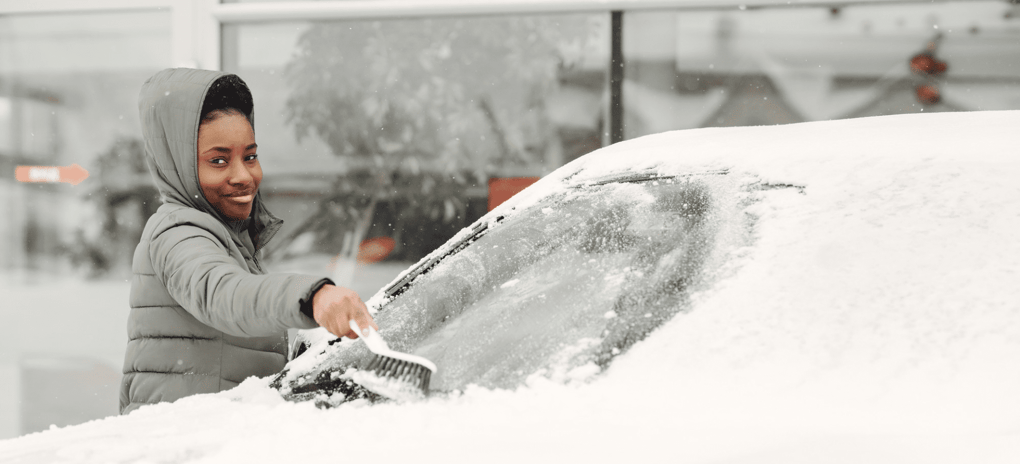
A first-aid kit
While a first-aid kit may not be required during a breakdown, it’s still a wise item to include in your essential breakdown kit.
In case of a small injury while driving or parked up, having a first-aid kit on hand can help you provide basic medical care until further help arrives.
It’s important to keep your safety in mind during an emergency, and a first-aid kit can be a crucial part of staying prepared and taking care of yourself and others if necessary.
Compare cheap breakdown cover
Your breakdown insurance policy information
It’s important to keep your breakdown cover information on hand in case of an emergency.
You can store it in your glove compartment or on your smartphone, ensuring that you can easily contact your provider if you encounter any issues.
Your breakdown insurance provider will send out a mechanic to assist you, depending on your level of cover.
They may attempt to fix your car at the roadside or tow your vehicle to a garage or another location of your choosing. By having your policy information easily accessible, you can quickly and efficiently contact your provider and receive the help you need during a breakdown.
Frequently asked questions
If you experience a breakdown, it’s important to take the following steps:
- Stay calm and think of other road users.
- Attempt to safely pull over and get your car off the road.
- Turn on your hazard lights to alert other drivers.
- Exit your car on the left-hand side and make sure to wear light-coloured clothing or a hi-vis vest, especially at night or in low visibility conditions.
- Take out your warning triangle and place it 45 meters (147 feet) behind your vehicle, but not on a motorway.
- If visibility is low, keep your sidelights on and make sure they are visible to other drivers.
- Finally, contact your breakdown service to receive assistance. By following these steps, you can stay safe and ensure that help is on the way as quickly as possible.

